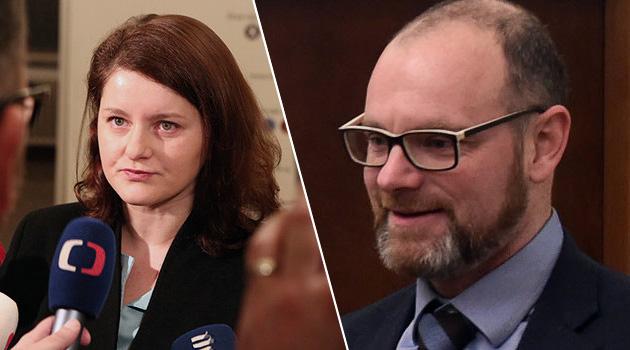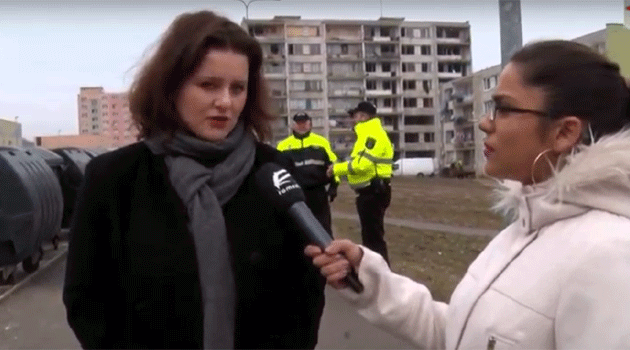Czech Labor Minister wants parents to lose housing benefits if children are truant, Pirate MP says that is monstrous

According to the daily Právo, Czech Labor and Social Affairs Minister Jana Maláčová is planning to punish the parents of truant schoolchildren by stripping them of their housing benefits. That would be the outcome of the revision to the welfare system she recently presented to MPs on the Social Committee.
“We are proposing a maximum limit of 100 missed hours of instruction per semester that are not due to medical reasons,” the minister told the daily, adding that she anticipates debate about the issue with the Education Ministry. Failure to fulfill their obligation to make sure children attend compulsory education can already be punished today by depriving parents of their subsistence benefit or their parental contribution benefit.
Similar restrictions are also included in a bill on the state providing advances on child support to one parent when the other does not meet their obligations, but children’s truancy has not yet been associated with parents’ eligibility for housing benefits. In addition to associating housing benefits with the regular school attendance of the children of those otherwise entitled to the benefits, the ministry is also planning to combine the existing housing allowance and housing supplement into a single benefit.
“We must send a clear signal that what is normal is to work and send children to school, that is the desirable state of affairs. Whoever does not send their children to school is robbing them of their future,” the minister said in justification of her draft bill.
The revision to the benefits also counts on increasing the amount of money that cannot be subjected to collections so that members of low-income groups who are facing collections will find legal employment to be remunerative despite their wages being garnished, although the ministry is also proposing extending the time during which those who refuse to cooperate with the Labor Office will be ineligible for such benefits from six months to nine. Several nonprofit organizations are criticizing the minister’s proposals, reproaching them for being too strict and warning that they could further deteriorate the situations of impoverished people.
“This revision of social benefits is perceived in large part as a repressive measure. I have been showered with criticism for being anti-social, but if people do not make efforts on their own, we will never move forward,” the minister told the Social Committee in the lower house.
“The number of excluded localities has tripled recently,” she told MPs. She did admit, however, that repression alone has never successfully tackled poverty, and is therefore proposing to combine it with intensive social work with clients.
“Social work is the key to addressing this entire issue,” she said. The Education Ministry is refusing to express its view of the proposals for now.
“The Ministry of Education, Youth and Sport will not comment on or critique the proposals of other ministries through the media,” Education Ministry spokesperson Aneta Lednová told the daily. The coalition Government will be discussing the proposals in the future.
“I don’t know this bill, but the number of parents excusing their children from attendance is growing even in regions such as Central Bohemia. School principals have turned to me and want a solution for this,” Czech MP Kateřina Valachová (Czech Social Democratic Party – ČSSD), herself a former Education Minister, told the daily.
“I think it’s important to begin with the causes of this and to arrange for children’s attendance,” Valachová said, adding that she will be discussing the issue with the Labor Minister. In the regions with the highest number of excluded localities and socially vulnerable people, such as the Ústecký or Karlovy Vary Regions, 14.5 % of pupils never complete their primary school attendance.
Czech MP Olga Richterová, the first Vice-Chair of the Pirate Party, has taken a critical stance toward the prepared changes. She called the bill monstrous.
“A limit of 100 hours of [non-medical] absence per child as a punishment for the entire family will not aid this problem without addressing its causes,” she told the daily. “Sometimes children actually don’t go to school because they didn’t get up in time, but sometimes they go because they wouldn’t be able to buy a snack or lunch there, or because they don’t have any clean clothes to wear.”
“Sometimes children do go to school but fall asleep during class because they live in residential hotels that are noisy at night where they’ve been bitten by bedbugs,” Richterová emphasized, reminding the daily that while a school can currently request that a doctor explain a child’s absence if it has lasted more than three days, doctors are not obligated to confirm why a child was absence. According to Richterová, the bill will lead to disputes between doctors and parents, as physicians are not clearly required to issue explanations of absence for children and many already refuse to do so.
The chair of the TOP 09 party, Markéta Pekarová Adamová, agrees with tightening the rules. “I agree with this, but in parallel to tightening the benefits it is absolutely crucial to work with the families in which these problematic phenomena appear so that the measure doesn’t result in a higher number of children being taken away from their families and placed in foster care, including institutions,” Pekarová Adamová explained.
